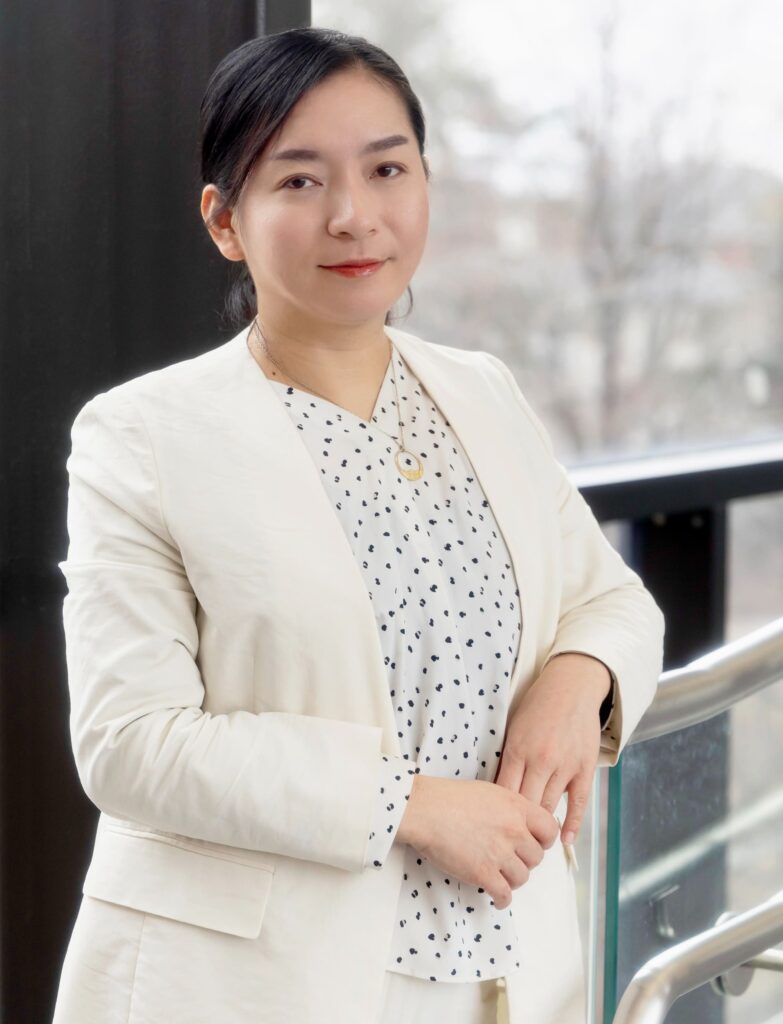Message
Message

Trauma—emotional wounds—is something anyone can experience. Based on our research data, one in two people will experience some form of trauma in their lifetime, such as intimate partner violence, child abuse, or sexual violence.
Unlike physical wounds, emotional wounds are invisible. This makes it difficult for people around the survivor—or society as a whole—to recognize their pain and struggles. Due to social stigma and inadequate support systems, many survivors find it hard to share their experiences or emotions with others, or to seek help. As a result, many suffer in isolation and face various health risks. We believe that this is not an individual problem, but a problem that needs to be addressed by society as a whole.
As a researcher, I have met many trauma survivors. I have heard many stories of trauma survivors who, in the midst of darkness with no way out, rose up, believing in the light and walking their own unique path to recovery through the support and connections of people and society. Each of these stories gives me courage and motivates my trauma recovery research.
For nine years, since 2016, we have been researching trauma recovery from various angles with researchers from around the world, based on the stories of more than 300 people involved.


What we found out through the research is that
Trauma Recovery is Possible
The journey of trauma recovery is not a smooth road, but a bumpy one, sometimes up and down, sometimes seemingly going backward, but moving forward even though the individual is unaware of it. We believe that after going through pain, anger, and sadness, we can find a "new self" that can deeply understand, accept, and love ourselves and our lives in their entirety.
At this institute, we aim to create a society—and a world—where all trauma survivors can recover holistically, regardless of gender, culture, age, profession, or other social categories. To achieve this, we seek not only to support survivors themselves but also to expand our focus to include those around them—such as family, workplaces, and providers—by promoting a deeper and more accurate understanding of trauma recovery, and by working toward a society where people can support one another.
I am fortunate to have met like-minded individuals who share this vision—people from diverse genders, cultures, ages, and professional backgrounds. Together, we hope to build and share innovative research and new support models that transcend conventional frameworks, grounded in international and interdisciplinary collaboration.
Finally, through the work of this institute, I sincerely hope to give back, even in a small way, to the survivors and providers who have guided and nurtured me along the way. Above all, I deeply hope that as many survivors as possible will be able to walk their own unique journey of trauma recovery—true to who they are.
(Trauma Recovery Institute)
Representative Director Sachiko Kita

History
Ph.D. in Public Health (The University of Tokyo)
In 2002, during her third year of university and just a year after the enactment of Japan's Act on the Prevention of Spousal Violence and the Protection of Victims, she first learned about domestic violence (DV) and the lack of sufficient support for survivors. Deeply moved by the suffering of women and children affected by violence, she became determined to dedicate herself to helping them, which led her to pursue a career as a certificated-nurse midwife. After obtaining her midwifery license at the Graduate School of St. Luke’s International University, she worked at an obstetric hospital in Tokyo. There, she introduced DV screening into prenatal outpatient care and published a study in an international journal reporting the prevalence and risk factors of DV during pregnancy. This experience strengthened her passion and resolve to reach and support more victims and survivors. After earning her PhD of Public Health at the Graduate School of Medicine, The University of Tokyo, she served as an assistant professor and then a senior lecturer at The University of Tokyo from 2015 to 2024. In September 2024, she began her term as a visiting scholar at the University of Michigan, and in April 2025, she established this research institute as a representative director.
Her area of expertise is gender-based violence (GBV), including intimate partner violence, child abuse, and sexual violence. Since 2016, she has served as a board member of the Multicultural Study of Trauma Recovery Consortium (MiStory), a trauma recovery research team spanning 13 countries. She has been committed to advancing research that sheds light on trauma recovery processes and develops effective intervention strategies.
Her area of expertise is gender-based violence (GBV), including intimate partner violence, child abuse, and sexual violence. Since 2016, she has served as a board member of the Multicultural Study of Trauma Recovery Consortium (MiStory), a trauma recovery research team spanning 13 countries. She has been committed to advancing research that sheds light on trauma recovery processes and develops effective intervention strategies.
In addition, with the goal of creating a society free from violence and one where survivors can recover their health and well-being, she has conducted research from various perspectives that contributes to interventions in clinical and support settings, as well as the development of societal policies and systems. Her findings have been published in international academic journals, and she has disseminated evidence both domestically and internationally.
She also serves as a board member of the advisory board for the Tokyo Metropolitan Project "Tokyo Model for Prevention of Child Abuse." Through lectures and training for the Tokyo Women's Plaza, the Tokyo Bar Association, various municipalities, hospitals, and academic societies such as the Academy on Violence and Abuse, both in Japan and abroad, she strives to promote the wider dissemination of her evidence and knowledge. In 2022, she was honored with the Excellence Award for Academic Papers at the 21st Annual Meeting of the Japan Academy of Nursing Sciences.
Research Themes
- Trauma Recovery Process and Care Guidebook
- Perinatal Mothers' Experiences of Violence and Child Abuse Prevention
- Family Poly-victimization
- Child trauma, and child suicide prevention
- Man and Gender Minority Trauma
Main Research Achievements
- Kita S, Zong Z, Koutra, K, Sorsa, M, Bryngeirsdóttir HS, Thorvaldsdottir KB, Sinko L, Saint Arnault D. (2024). Cultural influences on trauma recovery after gender-based violence: Multiple-country structural equation modeling. Transcultural Psychiatry. (in press)
- Kita S, Sinko L, Koutra K, Saint Arnault D. (2024). Development of the Self-Assessment for Trauma Recovery Tool (START) for Survivors of Gender-based Violence: Classification using Latent Class Analysis. Psychology of Violence. https://doi.org/10.1037/vio0000508
- Kita S, Zeynep O, Saint Arnault D. (2023). Initial testing of components of the Cultural Determinants of Trauma Recovery (CDTR) Theory among American gender-based violence survivors: Structural Equation Modeling. Journal of Advanced Nursing, 79(4), 1476-1492.
- Kita S, Morita K, Watanabe H, Michihata N, Morisaki M, Yamaji N, Ikeda M, Yasunaga H. (2024). Suicide attempt and self-harm among children in Japan: A nationwide inpatient database study. Global Health & Medicine. https://doi.org/10.35772/ghm.2024.01052
- Kita S, Chan KL, Tobe H, Hayashi M, Umeshita K, Matsunaga M, Uehara N, Kamibeppu K. (2021). A follow-up study on the continuity and spillover effects of intimate partner violence during pregnancy on postnatal child abuse. Journal of Interpersonal Violence, 36(13-14), NP6904-NP6927.
- Kita S, Tobe H, Umeshita K, Hayashi M, Kamibeppu K.(2021). Impact of intimate partner violence and childhood maltreatment on maternal-infant maltreatment: A longitudinal study. Japan Journal of Nursing Sciences, 18(1), e12373.
- Kita S, Sato I, Sakka M, Soejima T, Kamibeppu K. (2021). Does the use of childcare services reduce the impact of intimate partner violence on the quality of life of children?: Multiple-group structural equation modeling. Applied Research in Quality of Life, 16, 1825–1845.
- Kita S, Hayashi M, Umeshita K, Tobe H, Uehara N, Matsunaga M, Kamibeppu K. (2020). Intimate partner violence and maternal child abuse: The mediating effects of mothers’ postnatal depression, mother-to-infant bonding failure, and hostile attributions to children’s behaviors. Psychology of Violence, 10(3), 279-289.
- Kita S, Haruna M, Matsuzaki M, Kamibeppu K. (2016). Associations between intimate partner violence (IPV) during pregnancy, mother-to-infant bonding failure, and postnatal depressive symptoms. Archives of Women’s Mental Health, 9(4), 623-634.
Research grants
- Japan Academy of Nursing Science, Grant on studying aboard. 2024-2025
- JSPS Grand-in-Aid for Scientific Research (B), Development of a comprehensive cross-cultural recovery specific intervention for gender-based violence: A Japan-U.S. joint study. No. 23H0324. 2023-2025.
- JSPS Grand-in-Aid for Young Scientist. Development of a family care model to prevent and terminate family poly-victimization. 2020-2022.
- JSPS Grand-in-Aid for Young Scientist (B). Development and effects of a perinatal health program to improve mental health and parenting after childbirth among pregnant women exposed IPV. No. 17K17464. 2017-2020.
- JSPS Grand-in-Aid for Research Activity Start-up. Identifying the association of intimate partner violence during pregnancy and abusive parenting after childbirth and its related psychological factors. No. 15H06179. $27,300. 2015-2017
- UNIVERS foundation. Associations between intimate partner violence during pregnancy, mother-to-infant bonding failure, and postnatal depressive symptoms. 2013-2014.